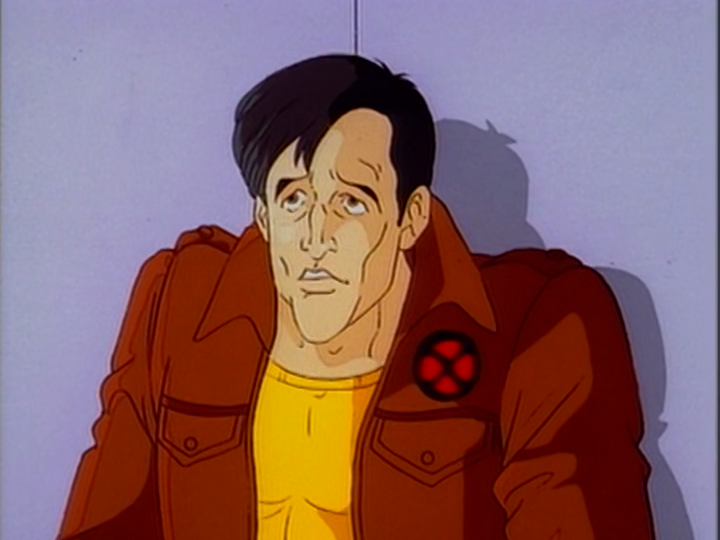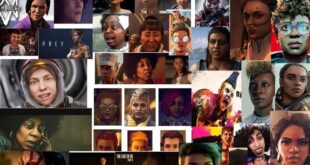“Shapeshifting Beyond Gender: X-Men’s Morph Redefined in ’97 Reboot – Progress or Politics?”
As the countdown to the eagerly anticipated “X-Men ’97” ticks away, a storm of debate has ignited over the latest news to hit the mutant fandom: Morph, the beloved shapeshifter whose first appearance captivated audiences in the early ’90s animated series, is reportedly being re-introduced as a non-binary character. This revelation has sparked a fiery conversation across chatrooms, forums, and social media platforms: Is this an overdue step towards inclusivity or an unnecessary injection of political ideology into a children’s cartoon?
The Power of Ambiguity in Animation
Morph’s original appeal lay in his fluid identity, his ability to become anyone, which, in a sense, made him everyone. Back in the ’90s, the term “non-binary” wasn’t part of the social vocabulary; Morph was simply the shapeshifting mutant, an entity of boundless potential who transcended typical classifications. His powers symbolized the very essence of what X-Men stood for: embracing the otherness and using it as a strength.
Quick Facts
- Morph was created for the TV show in 1992. This is not the same Morph from the 1960’s. His first appearance is in 1992’s X-Men Adventures #1 which came out after the cartoon.
- No one ever called Morph non binary or talked about his sexuality in the old cartoon.
- No one ever called Mystique non binary or talked about her sexuality in the old cartoon.
The New Age of Representation
Fast forward to the present day, and the landscape of representation has dramatically changed. Non-binary identities are more visible than ever, and there’s a strong push for media to reflect this diversity. The decision to explicitly label Morph as non-binary could be seen as a natural progression for a character whose very nature defies traditional boundaries. However, some fans worry that this move could overshadow the character’s core attributes with a label that is, to them, politically charged.
The Concern: Story vs. Statement
Detractors of the non-binary label for Morph argue that the inclusion should serve the story first. Their concern is that placing too much emphasis on the character’s gender identity could turn a narrative-driven show into a platform for social commentary, potentially alienating parts of the audience.
For the sake of the children and adults who will be tuning in, fingers are crossed that “X-Men ’97” will continue to be a source of inspiration, excitement, and a celebration of diversity without becoming a platform for political ideology. The aim is for Morph and the rest of the X-Men to be seen as heroes first and foremost, with personal identities that add depth to their characters, not define them in their entirety.
A Legacy of Social Reflection
Yet, it’s crucial to acknowledge that X-Men has always mirrored social issues. The allegory of mutants as marginalized individuals is deeply ingrained in X-Men lore, and the series has never shied away from tough conversations about race, religion, and sexuality. Could the inclusion of a non-binary Morph be seen as an extension of this tradition, rather than a departure from it?
The Fine Line of Storytelling
The debate intensifies when considering the balance a children’s show must strike. While it’s imperative to challenge young audiences and introduce them to a spectrum of human experience, there is also a desire to keep the narrative focused on adventures, character growth, and the eternal struggle between good and evil.
As fans and critics alike voice their opinions, the central question remains: Will “X-Men ’97” manage to walk the fine line between staying true to its roots as a story about mutants fighting for acceptance and adapting to a new era of representation?
In Anticipation of Unity
As we approach the series’ release, the hope among many fans is that the essence of Morph and the X-Men will not be lost in translation. The focus, they argue, should be on crafting engaging storylines that resonate with viewers of all backgrounds, without feeling like a manifesto.
The true test for “X-Men ’97” will be whether it can honor the legacy of its characters while weaving in modern perspectives that enrich rather than distract. Can the show maintain its universal appeal, uniting fans old and new through the timeless themes of struggle, acceptance, and the belief in a world where everyone is welcome?
Only time will tell if “X-Men ’97” will successfully blend nostalgia with progress, or if it will become another battleground for the cultural debates of our time. One thing is certain: the conversation around Morph is just the beginning, and the world will be watching to see how the series evolves.
 Retro-Replay.com Retro gaming reviews, news, emulation, geek stuff and more!
Retro-Replay.com Retro gaming reviews, news, emulation, geek stuff and more!






